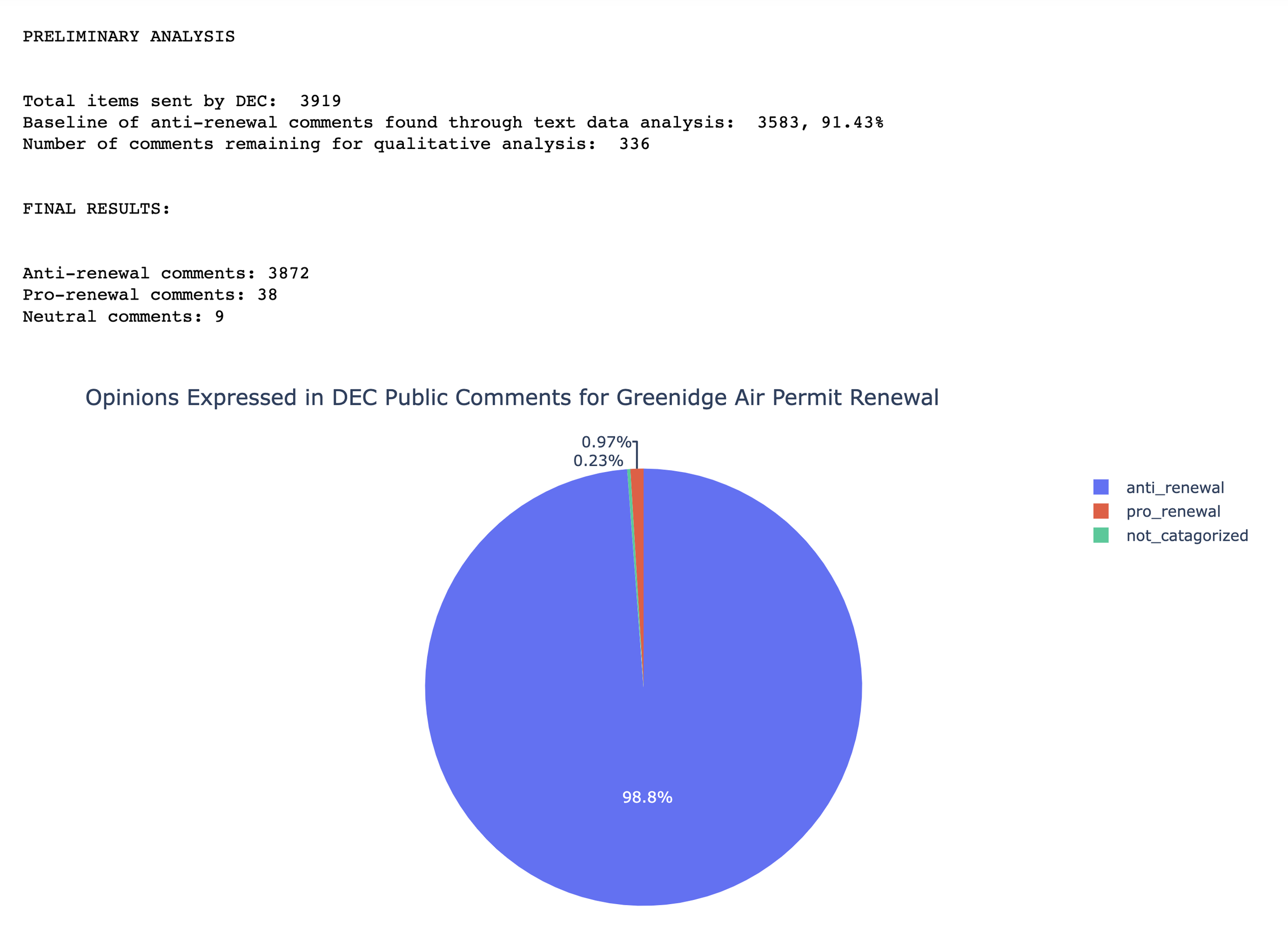DEC_Counts: Analyzing Public Comments around Bitcoin Mining
New York’s Department of Environmental Conservation (DEC) has repeatedly delayed its permitting decision regarding a controversial Bitcoin mining power plant on Seneca Lake, citing in part the need to review the thousands of public comments it has received on the issue. I wanted to find out what sorts of sentiments were expressed in the public comments, so I filed a Freedom of Information (FOIL) request with the DEC. They sent me a thumb drive with 3,919 files on it (mostly PDFs, some word documents). Even my relatively new iMac desktop had trouble even scrolling through all of the files.
Fortunately, Cornell Information Science PhD student Marina Zafiris was able to use text analysis tools to make the dataset more tractable. Most of the file names contained phrases which expressed the sentiment expressed by the commenter (“Deny Greenidge’s Title V Air Permit”, for example). Many of the documents could also be grouped together as having originated from the same organizing campaign, and could be sorted through quickly for that reason. I should say that even in the cases where similar language was used, many of the comments contained additional details about the commenter’s specific concerns and stakes in the issue.
Through a combination of text analysis and going through each file manually, we were able to sort out the files into three categories: in favor of permit renewal for the plant, opposed to permit renewal, or not clearly categorizable (this last category included comments requesting more information, for example). Here are the findings:
As the above pie chart shows, we found that 98.8% of the files expressed opposition, 0.97% were in favor of permit renewal, and 0.23% could not be categorized. Marina was further able to map many of the comments based on the location information they provided. The results, screen-captured below, are available as an interactive map here
Our work has received press coverage from Rosemary Misdary at WNYC and the Gothamist, Peter Mantius at Waterfront Online, and Cody Taylor at WENY news. Our research was performed in affiliation with the Repair & Redress project at Cornell’s Dept. of Info Sci.


